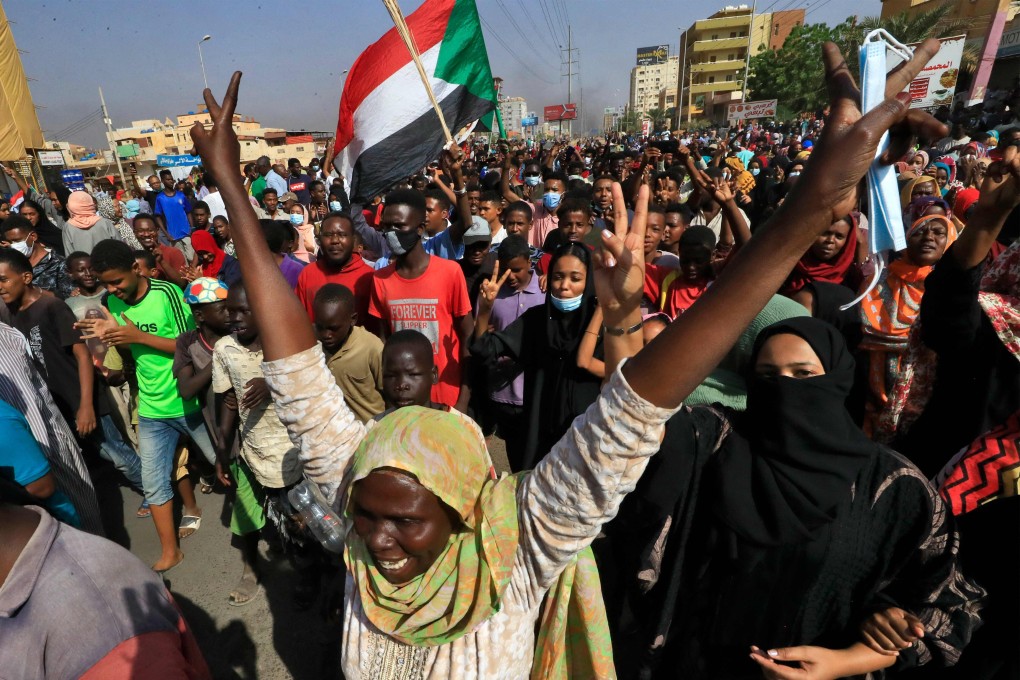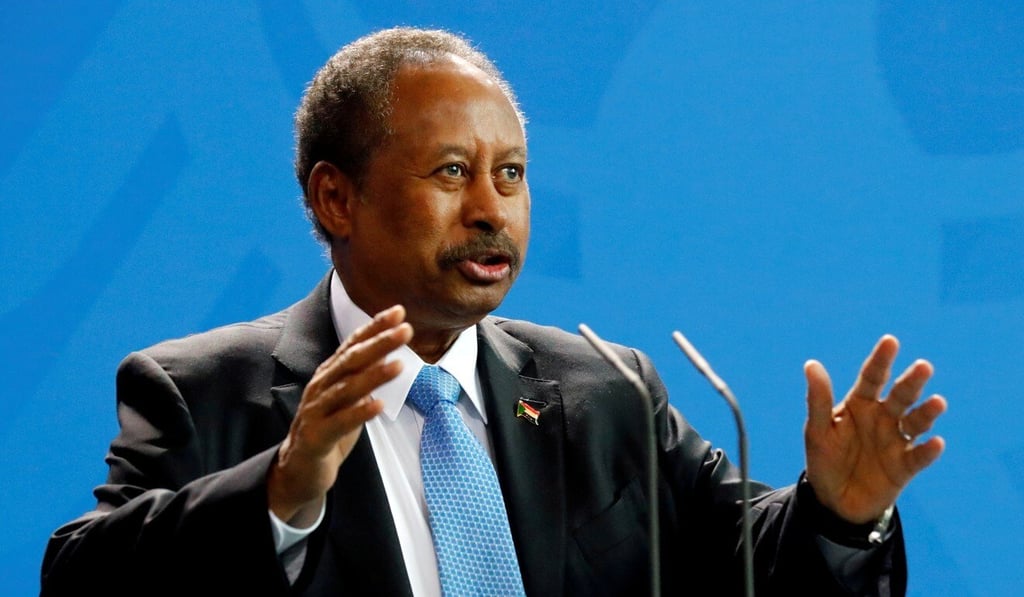Sudan military general Burhan dissolves government, arrests PM Hamdok in ‘coup’
- Prime Minister Abdalla Hamdok and other ministers arrested amid mounting tensions between Sudan’s civilian and military leaders
- Two killed after soldiers fire at people who took to the streets to protest against the power grab

Sudan’s top general declared a state of emergency, dissolved the authorities leading country’s democratic transition, and announced the formation of a new government after soldiers detained civilian leaders on Monday in what activists denounced as a “coup”.
General Abdel Fattah al-Burhan’s announcement in a televised address came after armed forces detained figures of the government in charge of leading the transition to democracy since the April 2019 ouster of autocratic president Omar al-Bashir.
“To rectify the revolution’s course, we have decided to declare a state of emergency nationwide … dissolve the transitional sovereign council, and dissolve the cabinet,” Burhan said, adding the military will appoint a technocratic government to lead the country to elections, set for July 2023.
His statement came as clashes erupted in the capital Khartoum, with soldiers firing live rounds at people who took to the streets to protest against the power grab.
The violence was largely centred outside the army headquarters in the capital hours after soldiers detained Prime Minister Abdalla Hamdok, ministers in his government and civilian members of Sudan’s ruling council, the information ministry said.
They were taken away after “refusing to support the coup”, it said on Facebook.
